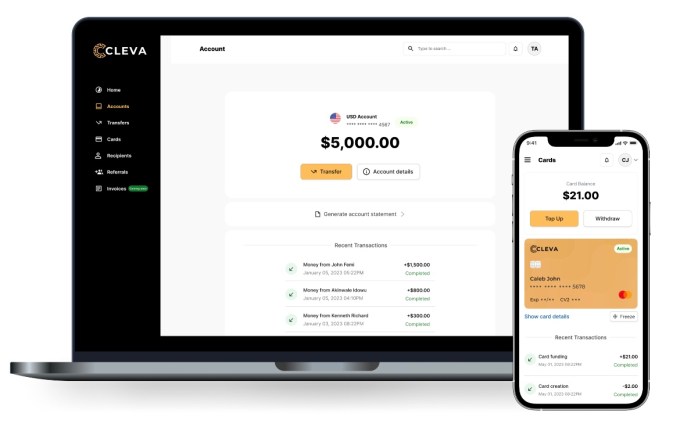
Rainforest, a startup that embeds payment processing into other software platforms, has raised $20 million in Series A funding — less than a year after announcing the close of its seed financing.
Raising back-to-back rounds was more common in 2021 but we don’t see it happening as often in this new environment. Rainforest’s traction is likely what helped draw new investor Matrix Partners as well as returning backers Accel, Infinity Ventures, BoxGroup, The Fintech Fund, Tech Square Ventures and Ardent Venture Partners. In total, the company has raised $31.75 million.
In the past six months alone, Rainforest says it has grown its payment volume by 17x, signing on “dozens” of platforms across a variety of industries. The two-year-old Atlanta-based company also claims to have increased its valuation “by more than 2x” but declined to share specific numbers.
CEO and founder Joshua Silver describes Rainforest as a payments-as-a-service provider that helps software companies “build and optimize” embedded financial services. It’s hardly alone in its mission, but Silver contends that his startup does it in a way that helps its customers make more money while being purpose built for SaaS companies’ specific needs.
Rainforest is a Stripe alternative that allows software providers to facilitate payments from end customers to their business clients. For example, a software platform for residential roofing contractors would enable payments from homeowners to roofing contractors. Rainforest claims that it is different from the competitors that already do this (such as FIS, Fiserv and Stripe) because it’s designed specifically for SaaS companies and offers white-glove service.
“There are too many payment products akin to fast food — they fill you up, but you’re sluggish, not nourished. Same for a SaaS,” Silver told TechCrunch. “Software companies can increase revenue per customer by 2x-5x by adding fintech, earning more revenue from embedded finance than from their core product. But that’s only possible when it’s fueled the right way.”
Silver previously founded Patientco, a healthcare SaaS that he sold to Waystar (which went public earlier this month). Prior to starting Rainforest, he said he consulted with more than 50 software platforms on their payments strategies and learned they were dissatisfied with existing embedded payments providers. So he set out to try and build a better one.
Competitors, he found, were usually large modern processors or PayFac providers, all with DIY service models. And none were built directly for software platforms — rather, they were designed with merchants in mind.
“None of the modern processors were built specifically for software platforms. Most of them were built directly for merchants, and they’ve all had to retrofit their platforms even to accommodate basic payment processing and reporting functions for software companies,” Silver told TechCrunch at the time of Rainforest’s last raise.
As a result, he said, Rainforest is capturing volume as software platforms migrate from legacy processors such as Fiserv and FIS. As that happens, it competes against companies like Stripe to embed financial services and payments.
“We’re purpose-built for software platforms, whereas large modern processors, like Stripe, were originally built for direct merchant processing. They’ve retrofitted their platforms to support embedded payments, but mid-market software companies are not Stripe’s primary focus,” Silver told TechCrunch. “We hear every week from software companies who aren’t getting the support they need from Stripe. It’s not surprising, since when you look at Stripe’s recent annual letter and product announcements, they are all focused on enterprises.”
Rainforest’s revenue model is entirely consumption-based, just like cloud services, with the company earning a small percentage of each transaction processed. Silver believes that Rainforest’s white glove service and transparent pricing is helping it win over customers.
“We have a simple, transparent pricing model and it’s posted publicly on our site because we have nothing to hide,” he said. “We handle all of the service, which in the payment space includes risk management and merchant onboarding, and compliance — all the things that software companies typically are not very good at. And for our partners, we manage all of the risk.”
One of its biggest recent customer wins is landing CRM and marketing automation platform Keap, which has 200,000 users and processes billions of dollars of payments.
“Signing Keap was pivotal because it shows we can help large, established companies and we can win against big-name competitors,” Silver said.
Over time, Rainforest has expanded into more verticals, such as field services and professional services, and deepened penetration in existing verticals like healthcare, retail and nonprofit.
On the product development front, it has added support for Apple Pay, 3DS and Plaid — which Silver believes will help platforms increase payments adoption while further reducing fraud.
“We’re one of the only payment providers using instant bank verification to accelerate merchant onboarding,” he said.
It’s a large market. Financial services embedded into e-commerce and other software platforms accounted for $2.6 trillion of total U.S. financial transactions in 2021, and by 2026 it’s expected to surpass $7 trillion.
“The market we’re in right now is massive and nowhere close to being penetrated. There are thousands of mid-market vertical SaaS platforms in the U.S. alone,” Silver said. “UBS estimates total U.S. SMB merchant processing volume at $2.2 trillion, and an increasing portion of that volume is being processed through SaaS platforms as SMBs move away from traditional processors.”
Looking ahead, Rainforest plans to use its new capital to “double down on product and support.”
Presently, it has about two dozen employees.
Matt Brown, partner at Matrix Partners, believes “trillions” in payment volume are shifting from “old-school solutions to modern software platforms with embedded financial services.”
“I’ve founded and invested in companies with this software plus embedded financial services model over the last decade. I’ve seen dozens of approaches to payments, but none come close to Rainforest,” he said. “They’ve built their core tech, not just a wrapper around others. They’re experts not just in payments, but in SaaS, platform growth, risk and the many other areas you need to pull this off.”
Another company in the space that recently raised funding is Forward, which works by enabling SaaS companies to rent its offerings as a service, collecting its own fees. Its software sits within its customers’ software, thus saving them money. And there’s also Gynger, which offers vendors selling technology a way to offer embedded financing through an accounts receivable platform that provides “flexible” payment terms. It recently announced a $20 million raise.
Want more fintech news in your inbox? Sign up for TechCrunch Fintech here.
Want to reach out with a tip? Email me at [email protected] or send me a message on Signal at 408.204.3036. You can also send a note to the whole TechCrunch crew at [email protected]. For more secure communications, click here to contact us, which includes SecureDrop (instructions here) and links to encrypted messaging apps.









